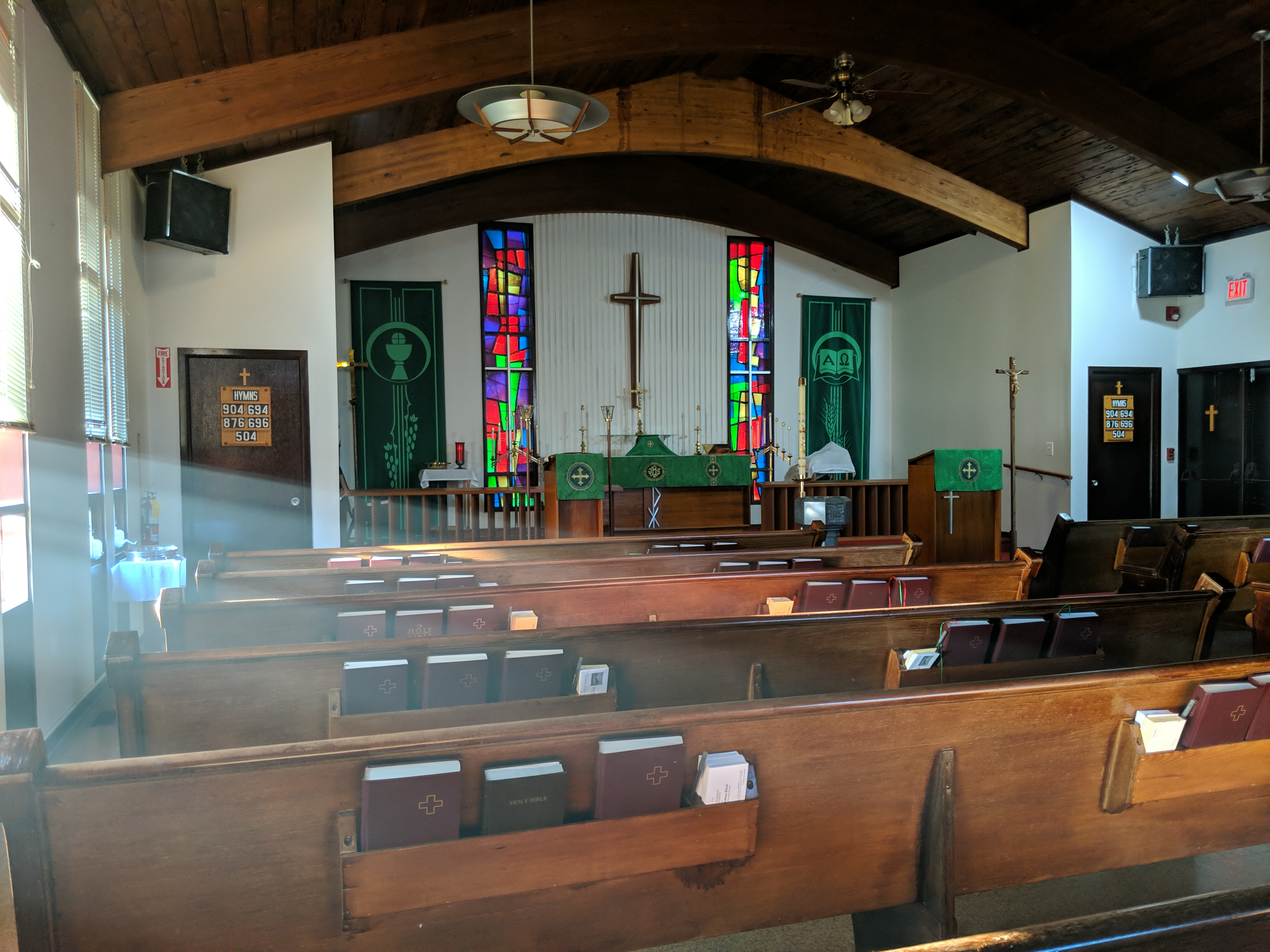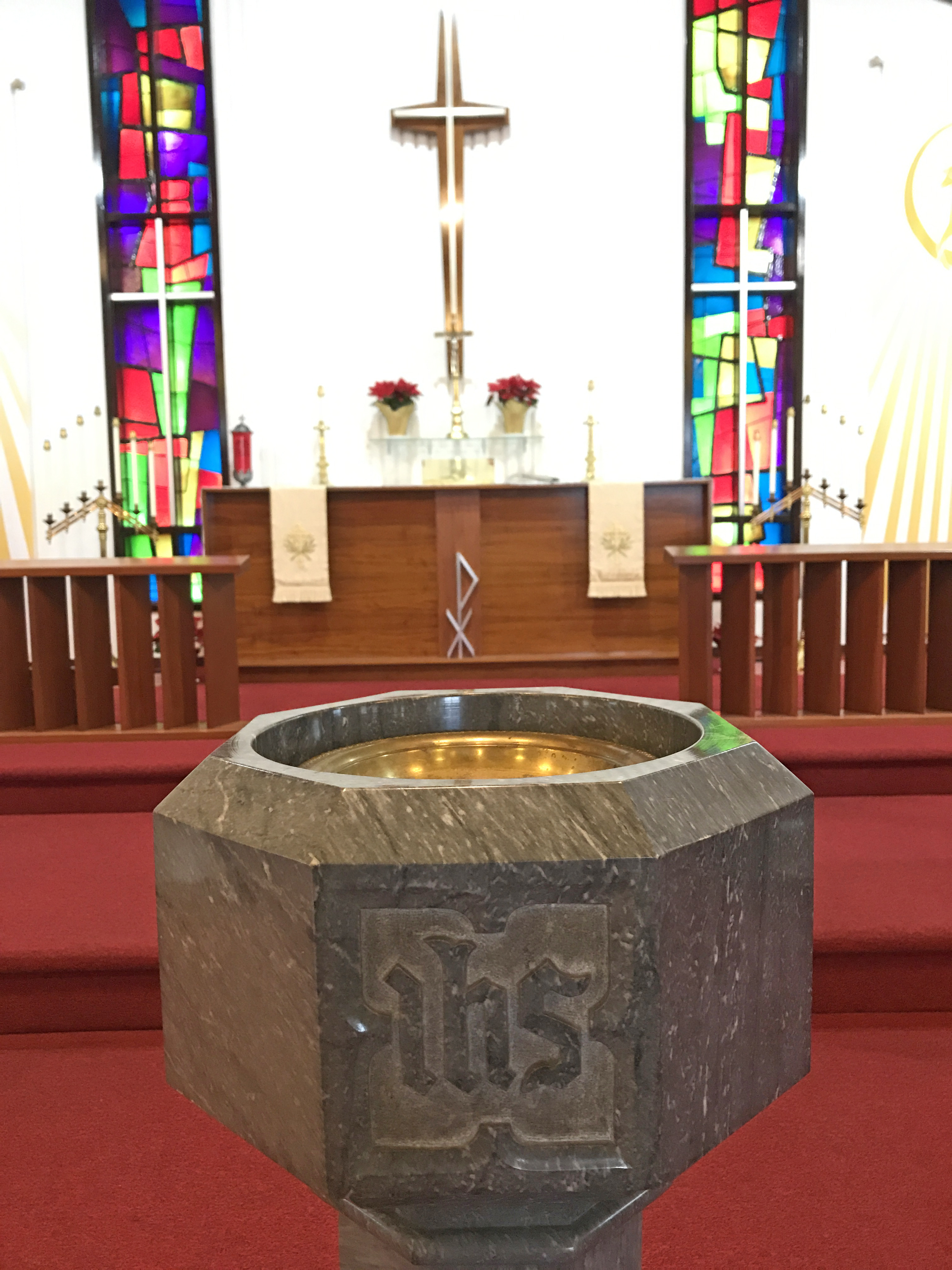The Seventeenth Sunday after Trinity – Sunday 1 October A✠D 2023
✠ Psalmody: Psalm 119:137, 124; 1–2, 5–6;33:12, 6;116:1
✠ Lection: Proverbs 25:6–14;Ephesians 4:1–6;Luke 14:1–11
In the Name of the Father and of the ✠ Son and of the Holy Spirit. Amen.
We all want the world to be a better place, or at least a good place by what we each understand as good, which would mean a betterment of it if we’re not there yet by our individual measures. If we say that we desire unity among all peoples, then here it is: we all want something better. We’re at least unified in that desire. Unfortunately, though, many an idea of better originates in the sinful heart of fallen people and are focused on what each individual person deems and wants his or her better world to be like. Hence, we return to childishness, tossed to and fro and carried about with every wind of doctrine, by the trickery of men, in the cunning craftiness of deceitful plotting. Passion for our different idols is exposed, the unity breaks as we seek to be elevated above others, even those closest to us, and we’re all the more encouraged by the loud voices we turn on to look out for “number one” first and foremost in all of life’s situations. It is no insignificant truth that from within, out of the heart of man, proceed evil thoughts, adulteries, fornications, murders, thefts, covetousness, wickedness, deceit, lewdness, an evil eye, blasphemy, pride, foolishness. All these evil things come from within us. So, if our desire for what is better is rooted in unrepentant desires of the flesh, if we deem what is good just by what we feel in our raw desires, even our better place would actually be worse for us all. God alone is good and if the definition of better doesn’t begin with Him and His Word, His objective, never-changing Word and our humble, trusting submission to it, then hopes for something better become risks for much worse here in time and there in eternity. True betterment cannot come from worldly ways of thinking or doing things. True exaltation to a better place, both here and yonder, comes only by God’s design and His doing.
The Pharisees saw a better world as one in which they knew what was best and everybody should simply follow their example and that they would, of course, then be recognized by their neighbors as ones keeping the standard oh so well themselves and worthy of accolade. It was half-based on God with the real intent coming from the self. This type of ungodly betterment is then based upon self-exaltation in the eyes of others. It takes the second table of the Law, to love your neighbor, and turns it on its head making God’s Holy Commands, and the people they are supposed to help, into means of service to us and to our desires that we should be thought of first in everyone’s minds as we are most certainly first in our own. It should be no surprise that the heart of man tends toward such thoughts of self-exaltation in a dog-eat-dog world where we’re taught that we must duke it out to get our slice of the pie of pleasures as that fleshly temptation is constantly plastered before us day and night by the sights and sounds that a lot of people spend a lot of money and a lot of time getting us to look at and listen to. We are taught first that it is meet, right, and salutary to look out for ourselves first and foremost and then are also convinced that if we don’t see to it, who will? Thus, this first risk of false-betterment comes not only at the cost of exalting ourselves in the eyes of others, but also of using people, our neighbors, as means to our desired ends instead of exalting them above ourselves as God has given us to serve them, to help them, and to see to their good. Love is the fulfillment of the Law.
The ultimate danger of Pharisees’ thoughts and actions of self-exaltation, as well as our own, isn’t in the attempt to be propped up in the eyes of other men, but it is in the wicked delusion of us thinking that we could even actually exalt ourselves to any degree whatsoever in the eyes of God; that we could do something to stand ourselves aright before Him; that the first table of the Law, to love God, is given so that we might say to Him, I have kept this from my youth, therefore I should be exalted in your eyes, O God. This is the eternal flaw in all thoughts and deeds of self-righteousness and it’s a most burdensome flaw, too, for we think that since the earthly way is one that requires the struggle of self-preservation, -awareness, and -striving, then the same ways must apply in heaven for us as well. Thus, we either struggle here with despair as we drag ourselves through all kinds of tortuous thoughts and anguish wondering whether God is pleased with us or not, or we grow prideful like the pharisees in thinking that our outward righteousness demands His pleasure. Neither place is good. If you are not certain that God is pleased with you, then you are likely either despairing or boasting, or being tossed to and fro between, and in any case in need of repentance, for both despairing and boasting are self-imposed torture based in self-righteous lies and not in the righteous truth of the Gospel.
In Jesus’s words, “Is it lawful to heal on the Sabbath?”, hear God’s condemnation for using the Law for our own self-exaltation, either in the sight of others, or in the sight of Him. If we do not see the Law as God’s good will to show us how to love Him and our neighbor, then we misunderstand it and deprive ourselves of His goodness that He has spoken in His statutes. We are to humble ourselves as we seek to live by them and beat our breast when we realize how we have not. For, it is from that blessed state of humility before God that the one true exaltation that we do need comes and it comes by Jesus Himself. He is the great Master of the feast of salvation as both host and meal, for His Flesh is food indeed, and His Blood is drink indeed. It is Christ Who exalts us from the lowliness, humiliation, and poverty of our sin to a higher place of peace, home, and confidence in Him that sprouts forth love of neighbor. The lifting up that He brings is not a vain one so that we may gain passing flattery from neighbor, but it is one in which when we are lifted up in Christ, we seek the same for others. Our Master came to serve, not to be served, therefore His good example is our joy to imitate for the sake of others as the Lord’s own providence gives us opportunity to love our neighbor in thought, word, and deed.
Likewise, the exaltation that Christ gives you is not one that puffs up on your own accord before His Father who is in heaven. It is an exaltation that is done completely on His part, at His will, and on His merit. If Christ is the One to exalt, then such is one that will stand and neither fade like the praise of man nor falter when it is tested by the Father’s fire. Jesus is the One Who sets you at His table has honored guests, worthy only to be there by faith in His words, given and shed for you for the forgiveness of sins. This is His will. This is His doing and it is marvelous in our eyes.
Your relief from the burden of self-first comes from outside of you. It is not your work, but the work of God, Almighty God, Who humbles you in putting to death the old Adam and exalting you to new life in Christ, a life that is pleasing to Him and good for your neighbor. Trust God. You need not worry about making sure you receive honor due to you or about preserving your good name in the sight of man when you know that it is written in the Lamb’s Book of Life. On account of Christ, and you being baptized into Him, can you know without a shred of doubt that God is pleased with you. He betters the world in this age through your humility in love and care for others in accordance with His Word. He exalts you properly before the Father by His shed blood. Your earthly honor isn’t as important as your flesh, the world, and the devil try to make you think it is. Trust the Lord to measure it out. Allow Him alone to define what a better world is, for your rightful exaltation in Christ at His table is what forever makes it so.
In ✠ Jesus’ Name. Amen.















Comments are closed, but trackbacks and pingbacks are open.